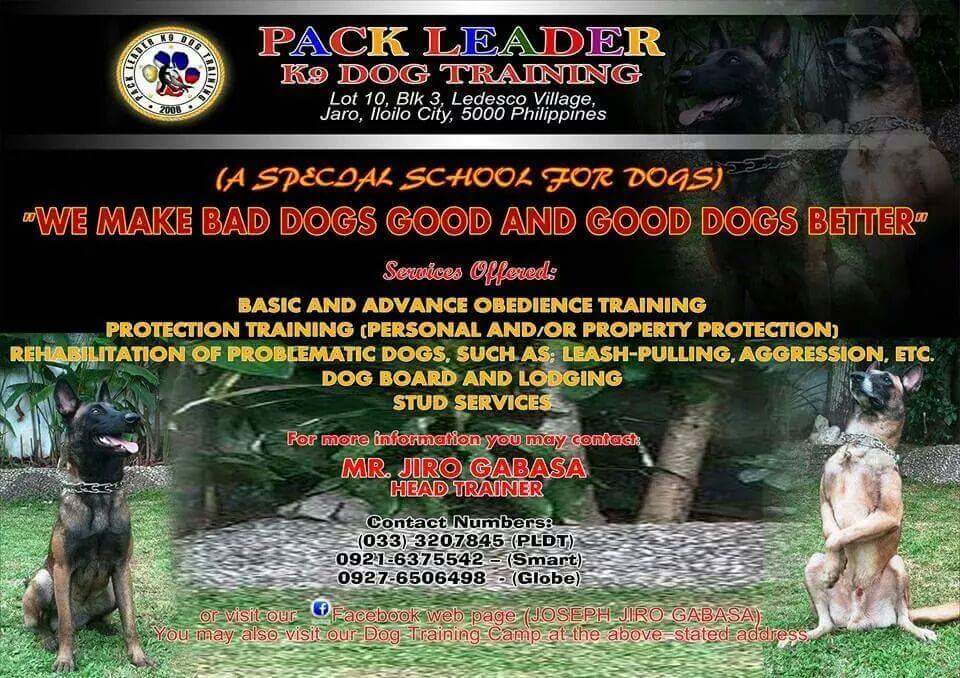
Mastering Advanced Dog Obedience: Tailored Training Techniques in the Philippines
Introduction:
Advanced obedience training for dogs goes beyond basic commands and encompasses a range of specialized skills essential for communication, safety, and overall well-being. In the Philippines, where cultural nuances and environmental factors shape pet ownership, mastering advanced obedience requires tailored training techniques. This article aims to explore the significance of advanced obedience training, address unique cultural considerations, and provide practical strategies for Filipino dog owners to achieve mastery in obedience training.
Understanding the Importance of Advanced Dog Obedience Training:
Advanced obedience training plays a pivotal role in enhancing the relationship between dogs and their owners. Not only does it promote effective communication and control, but it also fosters a deeper bond based on trust and mutual understanding. Studies have shown that dogs who undergo advanced obedience training exhibit better behavior in various settings, resulting in happier and more harmonious households.
Cultural Considerations in Advanced Dog Obedience Training in the Philippines:
In the Philippines, where dogs are often regarded as cherished members of the family, cultural norms heavily influence the approach to obedience training. For example, the concept of “utang na loob” (debt of gratitude) may shape training methods, emphasizing mutual respect and cooperation between dogs and their owners. Tailoring training techniques to align with cultural values ensures a more effective and harmonious training experience.
Essential Skills for Advanced Obedience Training:
Advanced obedience training encompasses a range of essential skills tailored to meet the specific needs of dogs and their owners. These skills may include off-leash recall, distance commands, advanced tricks, and specialized behaviors. For example, teaching a dog to perform complex tasks such as agility courses or scent detection requires patience, consistency, and advanced training techniques.
Tailored Training Techniques for Filipino Canine Companions:
Training techniques must be adapted to suit the unique characteristics and environments of Filipino canine companions. For instance, in densely populated urban areas, where distractions abound, training may focus on teaching dogs to maintain focus and obedience amidst crowds and noise. Incorporating positive reinforcement techniques, such as clicker training or rewards-based methods, can effectively motivate dogs to learn and perform desired behaviors.
Addressing Environmental Challenges in Advanced Obedience Training:
Environmental challenges, such as tropical weather conditions or crowded urban settings, pose unique obstacles to advanced obedience training in the Philippines. Strategies for overcoming these challenges may include selecting suitable training locations, providing adequate shade and hydration, and gradually acclimating dogs to various environmental stimuli. By addressing environmental challenges proactively, dog owners can create optimal training conditions for their pets.
Advanced Obedience Training for Specific Working or Service Dog Roles:
Advanced obedience training is particularly crucial for dogs in specific working or service roles, such as therapy dogs, assistance dogs, or search and rescue dogs. These dogs require specialized skills and training techniques tailored to their respective roles. For example, therapy dogs must be trained to remain calm and responsive in high-stress situations, while search and rescue dogs must possess exceptional scent detection abilities and obedience under challenging conditions.
Integrating Advanced Obedience Training into Everyday Life in the Philippines:
Integrating advanced obedience training into everyday life ensures that dogs generalize their skills and behaviors across different contexts. Training sessions can be seamlessly incorporated into daily routines, such as walks, outings, or interactions with family members. By making training fun, engaging, and relevant to real-life situations, dog owners can reinforce desired behaviors and strengthen the bond with their pets.
Overcoming Common Challenges in Advanced Obedience Training:
Common challenges, such as distractions, stubbornness, or fearfulness, may arise during advanced obedience training. Addressing these challenges requires patience, persistence, and the use of appropriate training techniques. For example, desensitization and counterconditioning techniques can help dogs overcome fears or anxieties, while structured training protocols can address issues of impulse control or reactivity.
Seeking Professional Assistance for Advanced Obedience Training in the Philippines:
While many dog owners can successfully train their pets in advanced obedience, some may benefit from professional assistance, especially for complex behaviors or specific goals. Certified trainers or behaviorists in the Philippines can provide personalized guidance and support, ensuring effective training outcomes and addressing any challenges or issues that may arise along the way.
Conclusion:
In conclusion, mastering advanced obedience training requires a tailored approach that takes into account cultural considerations, environmental challenges, and the specific needs of Filipino canine companions. By understanding the importance of advanced obedience training, adapting training techniques to suit cultural values, and seeking professional assistance when needed, dog owners in the Philippines can achieve mastery in obedience training and enjoy a harmonious relationship with their pets for years to come.
No Comments Yet